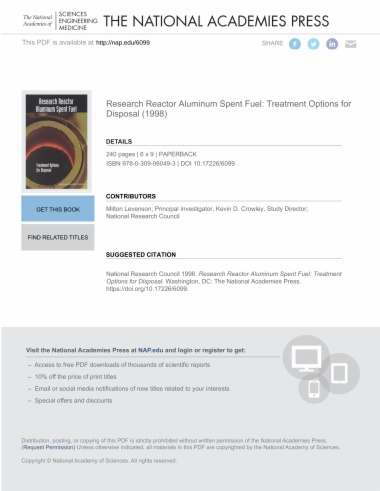

The U.S. Department of Energy (DOE) is preparing an environmental impact statement (EIS) for management of aluminum spent fuel from foreign and domestic research reactors, much of which is highly enriched in uranium-235. This EIS will assess the need for additional treatment and storage facilities at the Savannah River Site to accommodate the receipt of this fuel, and it also will assess and select a treatment technology to prepare this fuel for interim storage and eventual shipment to a repository for disposal.
This National Research Council book, which was prepared at the request of DOE's Savannah River Office, provides a technical assessment of the technologies, costs, and schedules developed by DOE for eight alternative treatment options and the baseline reprocessing option. It also provides comments on DOE's aluminum spent fuel disposal program, a program that is slated to last for about 40 years and cost in excess of $2 billion.